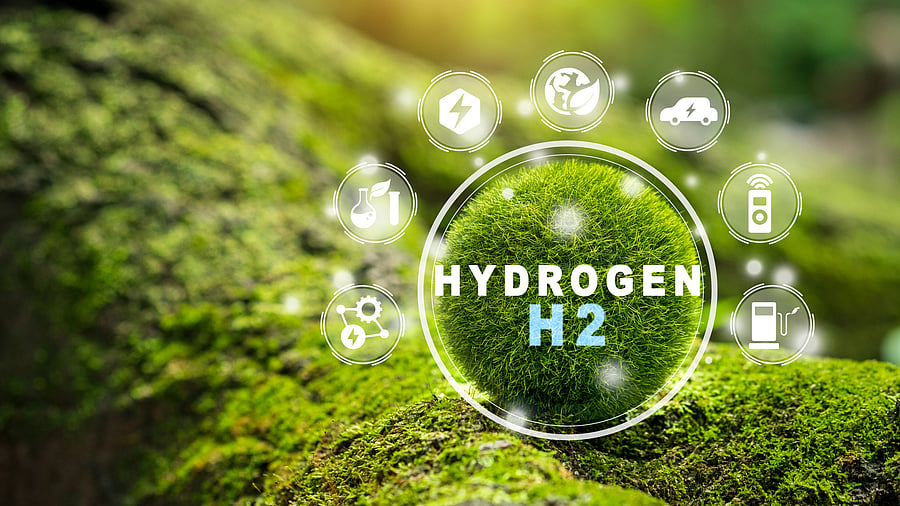
Hydrogen, with its high energy content and zero-emission combustion, has emerged as a promising alternative to fossil fuels. Representative image.
Credit: iStock Photo
Mumbai: In a significant step towards a cleaner, greener future, the Heavy Water Board (HWB), in collaboration with Bhabha Atomic Research Centre (BARC) has started construction of a demonstration plant for producing hydrogen through thermo-chemical splitting of water based on Iodine-Sulfur (I-S) process.
This pioneering project, located at the Heavy Water Board Facilities (HWBF) in Rashtriya Chemicals and Fertilizers Ltd (RCF) in Chembur, Mumbai, marks a crucial milestone in India’s efforts to transition towards a hydrogen-powered energy landscape.
The ceremony on Monday was graced among others by Dr Ajit Kumar Mohanty, Secretary, Department of Atomic Energy (DAE) & Chairman, Atomic Energy Commission (AEC), Vivek Bhasin, Director Bhabha Atomic Research Centre, S Satyakumar, Chairman & Chief Executive Heavy Water Board and S C Mudgerikar, Chairman and Managing Director, RCF, a press statement said.
Secretary, DAE & Chairman, AEC expressed that this first-of-its-kind facility demonstrates the potential of the Iodine-Sulfur process, a novel method of splitting water using heat in a chemical cycle. When coupled with nuclear energy, this technique offers an efficient, sustainable solution for hydrogen production.
Hydrogen, with its high energy content and zero-emission combustion, has emerged as a promising alternative to fossil fuels. The Iodine-Sulfur process offers a breakthrough by providing an environment friendly, scalable solution for hydrogen production, which can power vehicles and industries.
With this ambitious demonstration plant, India joins the ranks of nations at the forefront of hydrogen energy innovation. The continued research and development in this field will contribute to the country’s vision of achieving energy independence while reducing its carbon footprint.